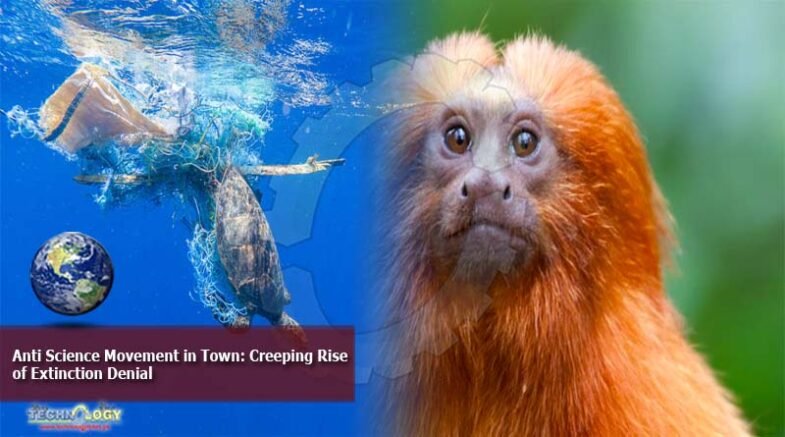As if the resurgence of anti-vaxxers and climate change deniers weren’t causing enough facepalms and headaches, there’s a new anti-science movement in town. Scientists have recently warned about the creeping rise of “extinction denial,” an organized attempt to downplay the planet’s biodiversity crisis that’s being driven by “politically well-connected and well-funded antagonists seeking to sabotage evidence-based policy for political and/or financial gain.”

The majority of scientists agree we’re currently witnessing the start of the planet’s sixth mass extinction event, a scale of biodiversity loss the planet has not seen since the extinction of the dinosaurs around 66 million years ago. Unlike other previous mass extinction events that were caused by colossal asteroids and ferocious volcanos, the event has a very clear cause: humans and their deforestation, poaching, culling, hunting, pollution, habitat destruction, the introduction of invasive species, and climate change.
However, certain individuals and groups are attempting to resist the scientific evidence with a different narrative. Reporting in the journal Nature Ecology, an international team of conservationists argues that the new threat of extinction denial primarily fits into three main categories: ‘species extinctions were predominantly a historical problem’, ‘economic growth alone will fix the extinction crisis’, and ‘technological progress and targeted conservation interventions will overcome extinction’.
The new study also claims that many scientific reports about biodiversity loss were met with a “swathe of opinion pieces [that] criticized the report and attacked both the reputations of the report’s authors and the process of estimating the total number of species threatened with extinction.”
For example, in May last year, the Washington Examiner published an article titled “How capitalism will save endangered species”. The same week, The Spectator published “This extinction warning just doesn’t add up.” Even just this past week, The Spectator published another story addressing a recently aired BBC documentary in a column titled “What David Attenborough’s ‘Extinction: The Facts’ didn’t tell you.”
Of course, debate and criticism is a necessary part of the scientific process, but the researchers argue that many pushing the extinction denial narrative are not scientists armed with evidence, nor are they acting in good faith.
“Any attempts to take the global economy in a more sustainable direction will be undermined by some stakeholders seeking to maintain the status quo,” Alexander Lees, lead study author and senior lecturer in conservation biology at Manchester Metropolitan University, told Mongabay.
“Many of the same individuals that routinely seek to downplay the impacts of climate change have written articles understating the biodiversity loss crisis,” Lees says. “Denialists have sought to obfuscate the magnitude of both extinctions and loss of bio-abundance.”
The researchers of the new report also offer some ideas on how to counteract this mounting movement. Firstly, they say it’s likely best to ignore those with a small platform to avoid amplifying their efforts at misinformation. If they do have a large established following, however, then conservation scientists should mount a measured response. However, it’s important to not get dragged into ugly arguments against contrarian journalists and authors who are experienced in arguing positions rather providing real evidence. Instead, scientists should be calm and respectful in their responses, but also reinforce their role as trusted experts who have evidence to back up their claims.
The facts are on the side of conservation scientists, but the report argues that communication is the key to taking back the narrative.
originally published by IFLScience
